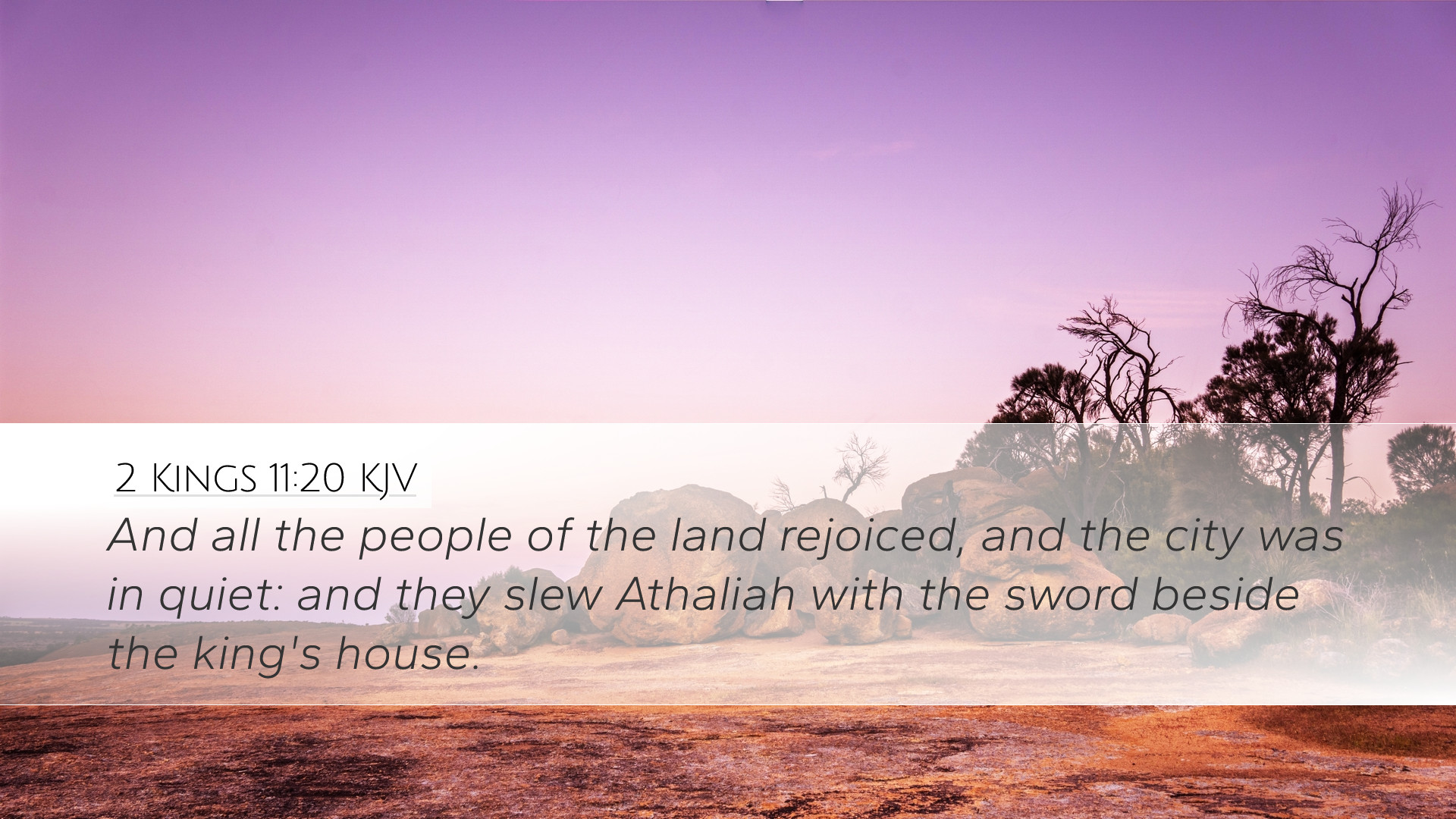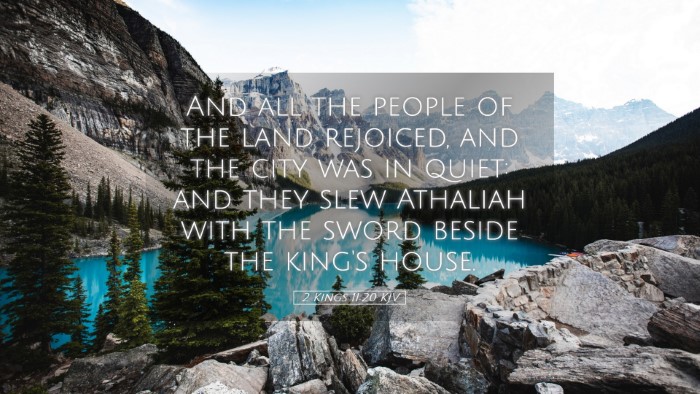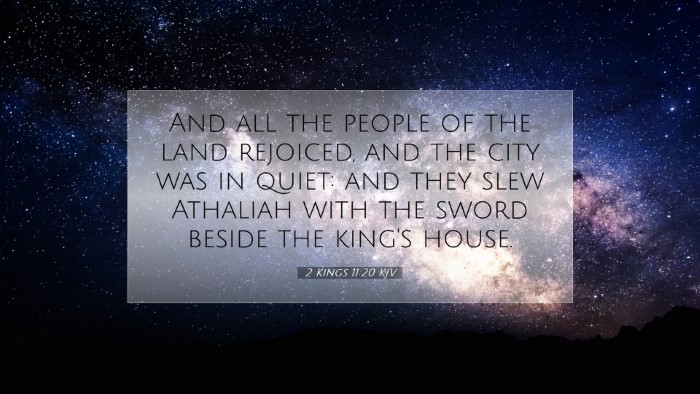Old Testament
Genesis Exodus Leviticus Numbers Deuteronomy Joshua Judges Ruth 1 Samuel 2 Samuel 1 Kings 2 Kings 1 Chronicles 2 Chronicles Ezra Nehemiah Esther Job Psalms Proverbs Ecclesiastes Song of Solomon Isaiah Jeremiah Lamentations Ezekiel Daniel Hosea Joel Amos Obadiah Jonah Micah Nahum Habakkuk Zephaniah Haggai Zechariah Malachi2 Kings 11:20
2 Kings 11:20 KJV
And all the people of the land rejoiced, and the city was in quiet: and they slew Athaliah with the sword beside the king's house.
2 Kings 11:20 Bible Commentary
Commentary on 2 Kings 11:20
2 Kings 11:20 states:
"And all the people of the land rejoiced, and the city was in quiet: and they slew Athaliah with the sword, and the priest brought forth the king's son, and put the crown upon him, and they made him king." (2 Kings 11:20 KJV)
Contextual Overview
This passage marks a significant turning point in Israel's history, particularly in the southern kingdom of Judah. It showcases the dramatic overthrow of Athaliah, the usurper queen, and the ascension of Joash to the throne. The events were steeped in religious symbolism, political intrigue, and the fulfillment of divine promises.
Analysis of Key Elements
Athaliah's Reign and Its End
Athaliah, the daughter of Jezebel, had seized control of Judah and ruled with an iron fist after the death of her son Ahaziah. Her reign represents one of the darkest periods, where idolatry and the worship of Baal were rampant. Matthew Henry comments on her character, noting her evil disposition and ambition, which led her to murder the royal heirs to secure her power.
The Role of Jehoiada the Priest
The pivotal figure in this account is Jehoiada the priest. He is portrayed as a righteous leader who understood the dire need for restoration and upheld the Davidic line by protecting Joash, the legitimate heir. Albert Barnes highlights Jehoiada’s strategic planning in orchestrating the coup against Athaliah, underscoring the importance of his priestly authority in rallying the people.
The People's Response
The passage vividly describes the people's rejoicing at the news of Athaliah's death and the coronation of Joash. This communal celebration signifies a return to legitimate leadership and covenant faithfulness. Adam Clarke notes that the joy expressed by the citizens indicated their relief from oppression and their desire for a righteous king who could restore proper worship and governance.
Theological Implications
This event carries profound theological significance:
- The Covenant Loyalty: God’s faithfulness to His covenant with David is accentuated through Joash's ascension. The lineage of David remains intact, fulfilling the promise of an everlasting dynasty.
- The Nature of Leadership: Athaliah's wicked rule serves as a foolproof contrast to the righteous leadership that Joash would embody as he follows the ways of Yahweh, especially under the guidance of Jehoiada.
- The Sovereignty of God: This narrative illustrates God’s sovereign hand at work in history, governing the affairs of nations and restoring His people. The overthrow of an ungodly ruler points to divine justice.
Practical Applications
For modern readers, especially pastors and scholars, several applications can be drawn from this text:
- Leadership and Integrity: The passage emphasizes the importance of integrity in leadership and the necessity of aligning with God’s vision, echoing Jehoiada's role in guiding Joash.
- Community Involvement: The people's participation in the events reminds churches and communities of the power of collective faith and action in standing against injustice.
- Hope and Restoration: Just as God restored Judah, believers are encouraged that God continues to redeem and restore His people today, despite circumstances that seem bleak.
Conclusion
2 Kings 11:20 serves as a profound reminder of God's providential care for His people and the importance of righteous leadership rooted in faithfulness to Him. The joy and celebration of the people reflect not only their political liberation but also their spiritual redemption. This passage challenges contemporary believers to seek God’s will in leadership and community, ensuring that they too engage in actions that lead to God-honoring outcomes.


